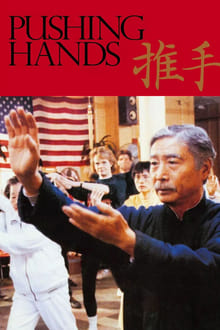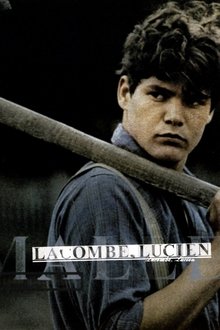
Jim Morris never made it out of the minor leagues before a shoulder injury ended his pitching career twelve years ago. Now a married-with-children high-school chemistry teacher and baseball coach in Texas, Jim’s team makes a deal with him: if they win the district championship, Jim will try out with a major-league organization. The bet proves incentive enough for the team, and they go from worst to first, making it to state for the first time in the history of the school. Jim, forced to live up to his end of the deal, is nearly laughed off the try-out field–until he gets onto the mound, where he confounds the scouts (and himself) by clocking successive 98 mph fastballs, good enough for a minor-league contract with the Tampa Bay Devil Rays. Jim’s still got a lot of pitches to throw before he makes it to The Show, but with his big-league dreams revived, there’s no telling where he could go.
You May Also Like

The story is about an elderly Chinese tai chi chuan teacher and grandfather who emigrates from Beijing to live with his son, American daughter-in-law, and grandson in a New York City suburb. The grandfather is increasingly distanced from the family as a “fish out of water” in Western culture.

An independent tragicomedy, Run If You Can is the debut feature for director Brüggemann who, along with his sister, also wrote the compelling screenplay. Forced to spend the rest of his life in a wheelchair, Ben is deeply desperate, despite his humor and vivaciousness. When he meets Christian, his new assistant, Ben treats him like every other helper he’s had. Things suddenly change when Christian meets Annika, “the cello player” whom Ben has been observing from his window for years. The three become close friends, putting Annika in the middle of an emotional, and somehow dangerous, ménage à trois. While conquering Annika is nothing very serious for career-focused Christian, Ben’s love for Annika reminds him of his past and forces him to face his most remote fears. A character-driven story, Run If You Can owes much of its power to the actors’ performances, especially Robert Gwisdek’s outstanding interpretation of Ben.

Caius Martius, aka Coriolanus, is an arrogant and fearsome general who has built a career on protecting Rome from its enemies. Pushed by his ambitious mother to seek the position of consul, Coriolanus is at odds with the masses and unpopular with certain colleagues. When a riot results in his expulsion from Rome, Coriolanus seeks out his sworn enemy, Tullus Aufidius. Together, the pair vow to destroy the great city.

An imaginary world comes to life in a holiday tale of an eccentric toymaker, his adventurous granddaughter, and a magical invention that has the power to change their lives forever.

Serebryakov, a retired professor and his beautiful, much younger second wife, Yeléna, visit their country estate, which funds their urban lifestyle. Vanya, brother of the Professor’s first wife, who manages the farm estate, and the local Doctor Astrov, both fall under Yelena’s spell, while complaining of the endless ennui of their provincial existence. Astrov is an experienced physician who performs his job conscientiously, but has lost all idealism and spends much of his time drinking. Sofya, the Professor’s daughter by his first wife, who works to keep the estate going with her uncle Vanya, meanwhile suffers from lack of esteem over what she sees as her own lack of beauty, and from an unrequited love for Dr. Astrov. Matters are brought to a head when the Professor announces his intention to sell the estate, Vanya and Sofya’s home, to achieve a higher income for himself and his wife.

Two different individuals on a journey of love, loss and life through the phases of Reincarnation.

Sukhpreet ‘Sukhee’ Kalra, a 38-year-old Punjabi housewife, goes to Delhi to attend her school reunion. Sukhee relives the 17-year-old version of herself whilst going through a plethora of experiences in a span of just seven days, coming out rekindled, reborn and making the most difficult transition in her life – from being a wife and a mother to being a woman again.

In Louis Malle’s lauded drama, Lucien Lacombe is a young man living in rural France during World War II who seeks to join the French Resistance. When he is rejected due to his youth, the resentful Lucien allies himself with the Nazis and joins the Gallic arm of their Gestapo. Lucien grows to enjoy the power that comes with his position, but his life is complicated when he falls for France Horn, a beautiful young Jewish woman.

In the midst of WW I, a doctor and a lawyer team up to turn a ramshackle old mountain chateau into a sanatorium/health spa that caters to the afflicted from most every stratum of European society, most of whom show up with false hope in their hearts and plenty of equally false identities. Even the proprietors have a few deceptions, chief among them is the part of the resort where they provide shelter for dying and horribly maimed soldiers. Still the atmosphere of this high-class convalescent home is that of great gentility that thinly disguises the seaminess of the guests’ secret activities. Though much of the film is a quirky comedy, tragedy comes creeping in when people begin dying of unnatural causes, and not even the pure mountain air can save the owners and the residents.

A successful professional baseball player gets his ego in check when he travels back in time to his boyhood sandlot ball-playing days.